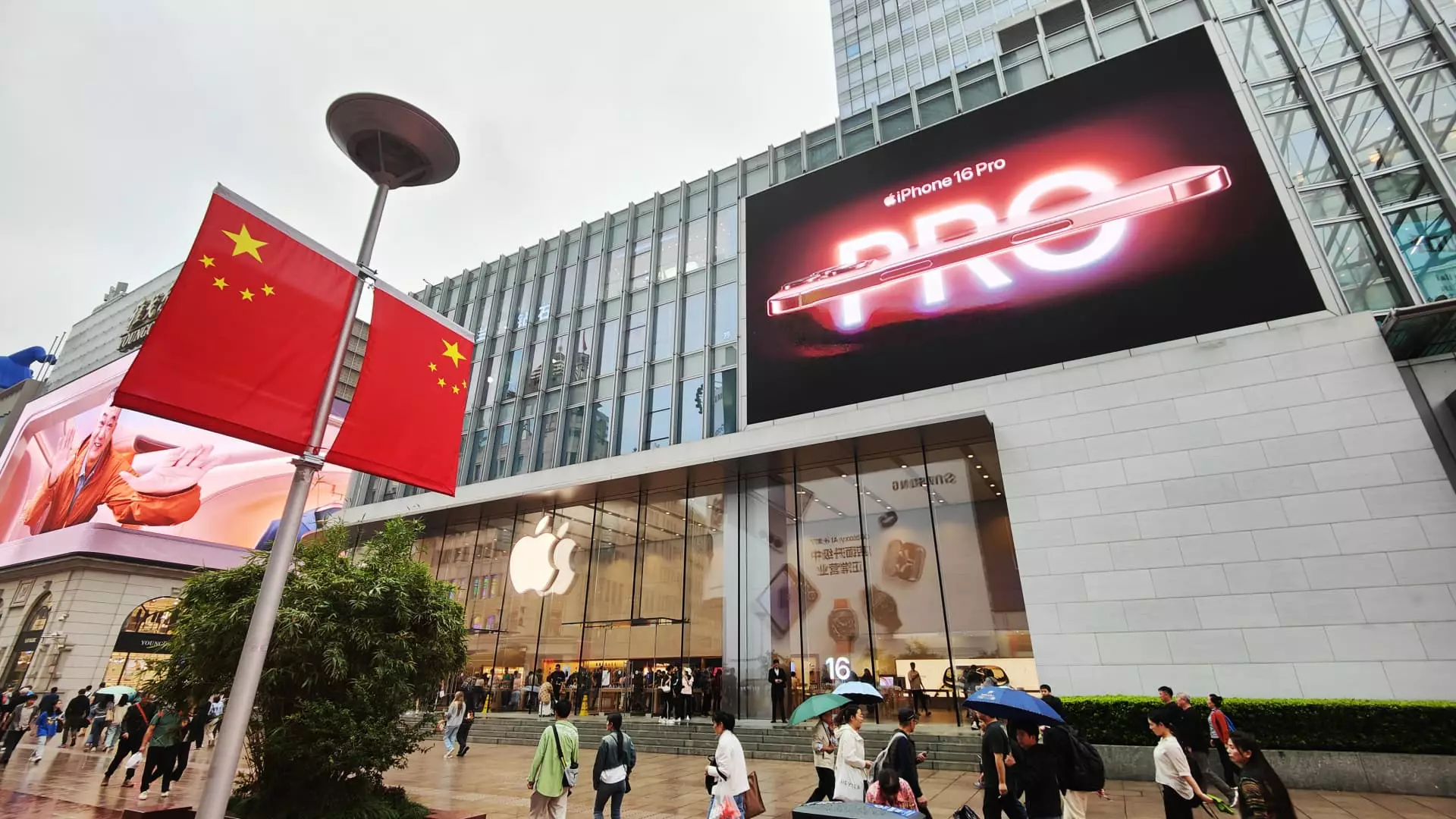Recent data reveals that foreign mobile phone brands have encountered substantial setbacks in the Chinese market, with a notable decline in sales in November. As reported by the China Academy of Information and Communications Technology (CAICT), shipments of foreign phones plummeted to 3.04 million units, reflecting a staggering 47.4% decrease compared to November 2022, and an even more pronounced 51% drop from October of the previous year. This trend emphasizes the increasing challenges that international companies face as they navigate a landscape dominated by domestic competitors.
Though specific data for individual foreign brands is not disclosed by CAICT, it is widely recognized that Apple remains the foremost international smartphone vendor in China. However, this dominant position does not shield Apple from the relentless competitive pressure posed by local brands. The resurgence of Huawei is particularly noteworthy; despite prior setbacks due to U.S. sanctions that severely impacted its operations, the brand has made a remarkable comeback in recent months. Huawei’s aggressive rollout of high-end smartphones has resonated with Chinese consumers, leading to significant market share gains that are starkly evident in IDC’s third-quarter analysis from last year.
As Apple grapples with the competitive landscape, the company is banking on the launch of its iPhone 16 series, introduced in September 2023, to revitalize its position in the market. The new series promises a range of innovative AI features through its Apple Intelligence software. However, a significant hurdle remains: local regulations surrounding artificial intelligence have delayed the software’s availability in China, preventing Apple from capitalizing on a key selling point while rival brands swiftly implement and promote their own AI solutions.
The importance of China to Apple’s overall strategy is underscored by CEO Tim Cook’s frequent visits to the country, aimed at bolstering partnerships and establishing collaborative frameworks with local firms. These efforts reflect Apple’s recognition of the necessity to adapt and align more closely with the unique demands and regulatory frameworks of the Chinese market. As domestic brands continue to enhance their product offerings and draw consumer interest, Apple’s need for targeted, effective engagement is more vital than ever.
In an effort to boost interest in the iPhone 16 series and counteract declining sales, Apple has announced a promotional strategy that includes discounts during the Chinese New Year holiday. This move not only aims to stimulate demand for its products but also illustrates the competitive urgency that Apple is facing in a market where consumer preferences are shifting rapidly. As the smartphone landscape in China evolves, the pressure on foreign brands, particularly Apple, to innovate and respond to consumer needs becomes increasingly critical for sustained success.

